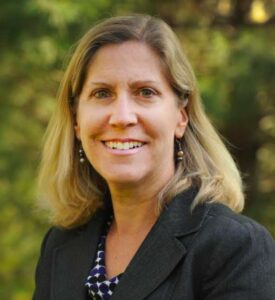Ed Talk is a biweekly opinion column. The views expressed are solely the author’s.
Arlington Public Schools (APS) has opened for hybrid learning for students from pre-kindergarten through 12 grade whose families have chosen that option, one year after it closed its doors due to the pandemic.
Sixty-four percent of APS students have opted for the hybrid model and attend school two days per week. Thirty-six percent of APS students — 9,611 of them — have remained with full distance learning.
APS data show the impact of distance learning on academic achievement. That impact has not been the same for all students. Test scores and grades for Economically Disadvantaged students, English Learners, Black students, and Hispanic students have declined the most.
For example, scores for Black students in kindergarten through grade two on a literacy test known as PALS dropped from 87.1% in the fall of 2019 to 78.6% in the fall of 2020. However, scores for White students fell only from 93.8% to 91%.
An APS analysis of second quarter grades shows that the percentage of economically disadvantaged middle school students who failed classes nearly doubled from last academic year to this year, increasing from 6.3% to 11.53%. This compares with middle school students overall, whose failing grades increased from 2.46% to 4.92%.
In high school, failing grades for English learners increased from 16.1% to 25.72% during distance learning, compared with an increase from 6.2% to 9% for high school students overall.
In light of this learning loss, it is important to know which students have not returned to school. Who is missing out on the benefits of in-person learning and why have they made that choice?
But APS has provided no demographic data about this.
Fairfax County Public Schools reported this week that 37% of Black parents intended to send their children back to school, compared with 52% of Hispanic parents, and 57% of White parents, according to a March survey.
A study of the Centers for Disease Control (CDC) conducted last summer found that Black and Latino parents were more concerned about sending their children back to school than were White parents. The study suggested that for minority parents, the fear of poor health outcomes as a result of COVID-19 outweighs the benefits of in-person learning.
Those fears are well-founded. COVID-19 has had a disproportionate impact on minority communities. The gap in life expectancy, for example, has increased between 2019 and 2020. According to a recent report of the CDC, life expectancy decreased by 2.7 years for the Black population, 1.9 years for the Hispanic population, and .8 years for the White population during this period.
During the March 11 School Board meeting, Superintendent Dr. Francisco Duran commented that a large number of parents of English learners have opted to continue with distance learning. It may be that they — and Black and Latino parents in Arlington — like those surveyed by the CDC, fear sending their children to school because of the impact of COVID-19 on their communities.
In Arlington, the highest number of COVID-19 cases is in the 22204 zip code, where the percentage of the Black and Hispanic populations is about twice that of Arlington overall. In addition, the rate of cases per 100,000 residents in this area is much higher than the County average, according to data on the County’s website.
With 64% of students in the hybrid model, APS must not lose sight of the 36% of students who continue with full distance learning, and especially those students whose grades and test scores have declined the most.
APS should report on the demographics of the 9,611 students who remain in full distance learning. It also should set targets for improvement in grades and test scores such as PALS. This accountability is necessary to start to reverse the trend of greater learning loss during distance learning for minority students.
Abby Raphael served on the Arlington School Board from 2008-2015, including two terms as Chair. She also led the Washington Area Boards of Education for two years. Currently she co-chairs the Destination 2027 Steering Committee, is a member of the Board of the Arlington YMCA, and works with Project Peace, the Community Progress Network, and Second Chance


